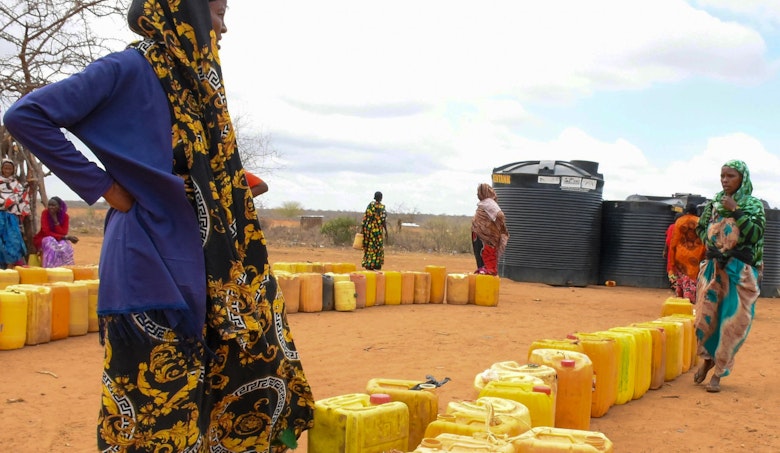Joint Emergency Drought Response in Marsabit, Kenya
The Joint Drought Response project aims to contribute towards mitigating the adverse effects of ongoing drought on children and their families in Moyale Sub County of Marsabit County through cash transfer interventions.
Raymond Murithi Murathi
Humanitarian Project Coordinator
Background
Communities in the Horn of Africa are facing the threat of starvation following 4 consecutive failed rainy seasons - a climatic event not seen in 40 years. About 4.1m people in Kenya are severely food insecure due to the drought (UN June, 22). About 1.5 million livestock have died
(Multi-agency Drought Alert-May 22). Consequently, children have less access to milk, negatively affecting their nutrition. Food prices are spiking and families are resorting to negative coping mechanisms in order to survive, with women and children facing the risk of GBV, exploitation, abuse and for children; limited access to education.
Kenya declared a drought emergency in September 2021. Marsabit County is among the most affected counties with 321,850 people facing food insecurity; 70% (IPC 3+) of its population (IPC analysis, 10 June). The Coping Strategy Index (CSI) decreased from an already low 19.9 last year to 18.6 in 2022 and only 37.3% of the population of Marsabit has an acceptable FCS (Marsabit Drought Bulletin: May 2022). At least 229,000 people are in need of food assistance and 23.5% of <5 children are acutely malnourished (NDMA). Over 500,000 livestock deaths were reported by the end of Jan 22 (NDMA). According to the latest long-lead seasonal forecasts, there is now a concrete risk that the October-December (OND) rainy season could also fail. Should these forecasts materialise, the already severe humanitarian emergency in the region would further deepen (Multi-agency alert, May 22).
Earlier, the county Government of Marsabit raised two humanitarian appeals to preserve livelihoods in March 2021. Despite these efforts, the scale of the ongoing responses are disproportionate to the needs.
To address the immediate life saving needs Terre des Hommes Netherlands will target Moyale and Sololo sub counties of Marsabit. The two sub counties which border Ethiopia have suffered multiple shocks such as border closure during COVID 19, cross border conflicts, prolonged droughts and desert locust infestation.
The Joint Drought Response Project will provide Multi-purpose Cash Assistance (MPC) via Mpesa platform and Livelihood protection (livestock feeds) to the most vulnerable and at-risk families with a focus on households with malnourished children and those facing protection risks to meet their immediate food and protection needs.
Project goal
The overall goal of the Joint Drought Response project is to address the immediate lifesaving food and livelihood protection needs of drought affected communities.
Project Objectives
The Joint Drought Response project aims to ensure that children and their families have improved access to food to overcome the adverse effects of ongoing drought in Moyale Sub County of Marsabit County.
The main activities implemented include;
- Provision of multipurpose cash assistance of ksh. 8956 (equivalent to 75.13 Euros) exclusive of charges/ month to 641 food insecure households (4,197 people) for 5 cycles.
- Supplementary livestock feeding. 278 households with malnourished children owning breeding livestock will be targeted for supplementary livestock feed. Targeted households will receive 6 kg of hay and 3 kg of concentrate a day to feed 3 milking cows/6 milking sheep/goats for 5 months.
Target beneficiaries
The project will target 4,197 most vulnerable people including 1,315 girls, 1,526 boys, 687 women and 669 men who are adversely affected by the drought, in combination with other vulnerabilities, including identified vulnerable groups such as pastoral dropouts due to loss of all livestock, single parents, households with malnourished children, pregnant & lactating mothers, persons with disabilities, child labor, survivors of SGBV, unaccompanied & separated minors, victims of human trafficking, minority groups & the elderly with no support.

